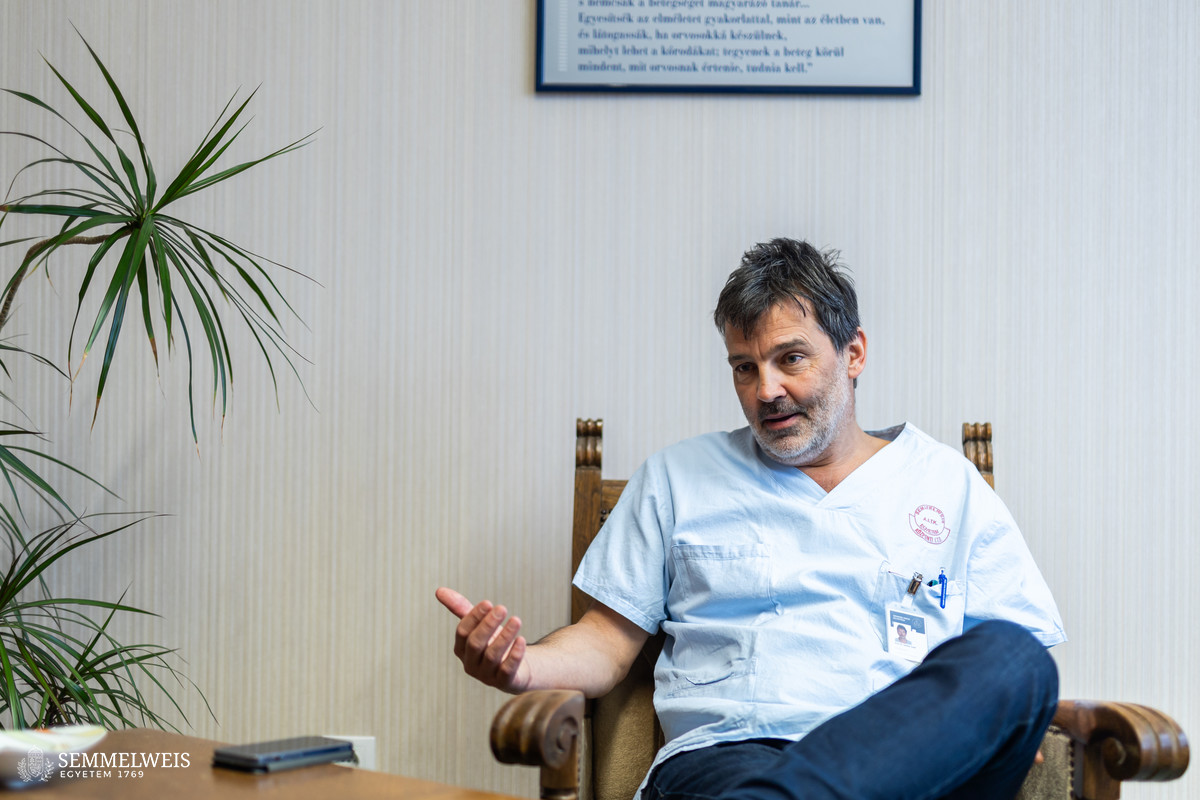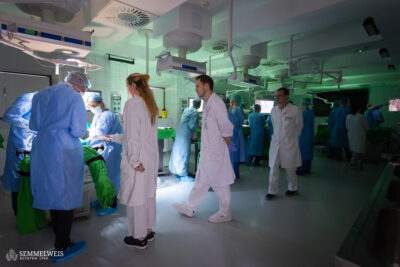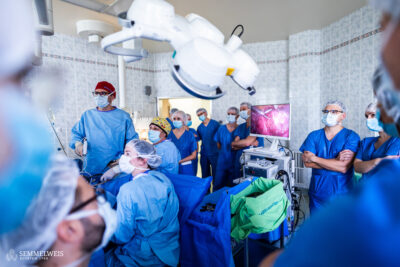Today Semmelweis University is the most important training center in Hungary, and although the undergraduate training functions very well, the training of anesthesiology and intensive therapy specialists needs to be revised in order to guarantee that during the five years of training, candidates gain an insight into all aspects of the profession, so that they can later succeed as specialists with confidence. To achieve this, the foundations must be unified at all levels of patient care, not only in intensive therapy, but also in the field of anesthesiology, in cooperation with the Institute of Anesthesiology and Perioperative Patient Care, established by the Senate last June, said Dr. Zsolt Molnár, the newly appointed director of the Intensive Therapy Clinic (ITK), which was established on January 1, 2024.
He believes that a high standard of patient care will guarantee a high level of specialist training, which requires an equally high level of education and research. This will create a motivating workplace and training community, which will be a career-retaining force not only for those starting their careers but also for those working in the clinic, said Dr. Zsolt Molnár, who, as of February 1, 2024, was also appointed president of the Anesthesiology and Intensive Care Section of the Hungarian College of Health Professions by the State Secretary for Health of the Ministry of Interior.
In accordance with the decision of the Senate of Semmelweis University, the Intensive Therapy Clinic was established on January 1, 2024, under the direction of which the intensive care of traumatology and the Home Mechanical Ventilation Program were placed. The anesthesiology and intensive therapy services at the Heart and Vascular Center as well as the Department of Surgery, Transplantation and Gastroenterology are managed separately, based on their location. Dr. Zsolt Molnár has been appointed director of the new clinic, while Professor Dr. Endre Zima has been appointed as the first in charge of anesthesiology and perioperative duties.
Organizational changes have affected not only patient care but also education. The Department of Anesthesiology and Intensive Therapy has launched under the leadership of Dr. Zsolt Molnár and Dr. Endre Zima as President of the Professional Committee. The Department of Defense, Disaster Management and Law Enforcement was established under the leadership of Dr. János Gál. The former will be responsible for the entirety of undergraduate training and research in anesthesiology and intensive therapy at the University.
The director intends to develop a structured and organized regular education model in residency training that, in addition to attending courses, will actively involve residents in their daily work at the bedside.
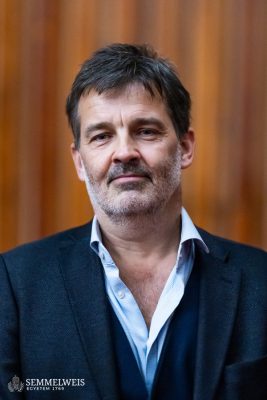 “Many times in my career, I have experienced that lots of specialists have a mindset about their hard-earned knowledge that ‘knowledge is power, so I don’t share it’. I disagree, therefore I encourage my colleagues to pass on what they know with an attitude of service and humility, even in everyday life, instead of constantly testing the knowledge of candidates. Fortunately, we have a lot of excellent trainers at the institute, so I am sure that this will not pose a problem,” the director noted.
“Many times in my career, I have experienced that lots of specialists have a mindset about their hard-earned knowledge that ‘knowledge is power, so I don’t share it’. I disagree, therefore I encourage my colleagues to pass on what they know with an attitude of service and humility, even in everyday life, instead of constantly testing the knowledge of candidates. Fortunately, we have a lot of excellent trainers at the institute, so I am sure that this will not pose a problem,” the director noted.
“In the longer term, I would also like to boost research activities, partly by involving those residents and PhD students who feel interested in the training of the Center for Translational Medicine. This will help them learn the language of science and research methodologies in depth, and then even answer their own research questions at the bedside, contributing to the development of the field and improving the quality of patient care,” said Dr. Zsolt Molnár. He envisages developing a unified patient care concept in close collaboration with the surgical specialties, incorporating the results of the latest scientific research in addition to the already outstanding activities of the university clinic. He would also continue to pursue research in his areas of interest, such as personalized fluid therapy, personalized circulatory support and infection management, ventilation, and support for high-risk surgical patients through the intervention, integrating the results achieved so far into daily bedside practice.
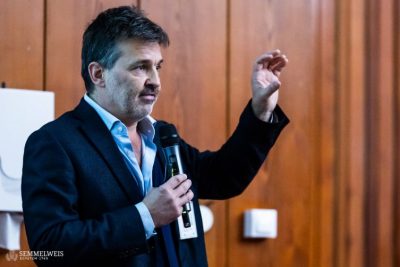 Dr. Zsolt Molnár believes that the clinic and the department will soon be able to produce results in the fields of patient care, education and research that will attract human resources and contribute to Semmelweis University becoming one of the world’s leading higher education institutions. “In the longer term, my aim is to make the anesthesiology and intensive therapy that is being developed at Semmelweis University a model not only in Hungary, but also beyond its borders, even in Western Europe,” the director added.
Dr. Zsolt Molnár believes that the clinic and the department will soon be able to produce results in the fields of patient care, education and research that will attract human resources and contribute to Semmelweis University becoming one of the world’s leading higher education institutions. “In the longer term, my aim is to make the anesthesiology and intensive therapy that is being developed at Semmelweis University a model not only in Hungary, but also beyond its borders, even in Western Europe,” the director added.
“It has been my vision for twenty-five years, which I have tried to implement in all my workplaces, to ‘bring international standards to Hungary and involve Hungary in shaping international standards’, i.e. to translate the latest scientific results into daily practice as soon as possible, while at the same time contributing to the development of medicine with high-quality clinical trials that will lead to new international standards,” Dr. Zsolt Molnár emphasized.
Melinda Katalin Kiss
Translation: Judit Szabados-Dőtsch
Photo: Bálint Barta – Semmelweis University
